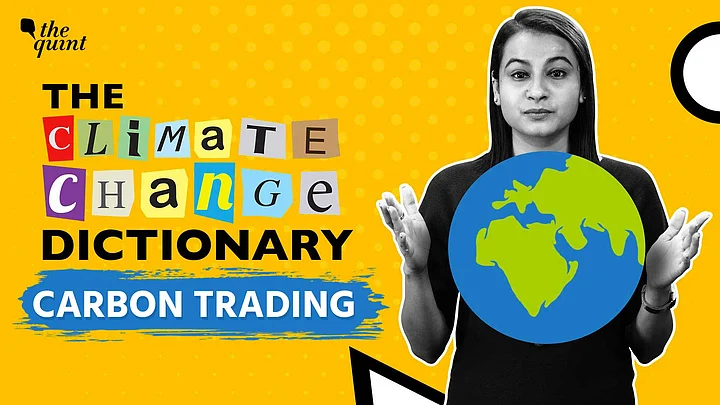'The Climate Change Dictionary’ is all about the buzzwords in the global politics of climate change, and as we inch closer to COP 27, carbon trading and carbon markets are a hot topic.
Carbon, which was once only a major cause for pollution and the dire fluctuations in our climate, has now become a tradable commodity that is slowly creating its own market system around the world, along with other greenhouse gasses (GHGs).
Carbon trading is a mechanism to manage GHG and carbon emissions across the globe.
Carbon Credits, Compliance, and Voluntary Market Systems
In simple terms, carbon markets are trade systems through which carbon credits can be sold and bought.
But what are carbon credits?
One carbon credit is equivalent to one tonne of carbon or GHG emissions sequestered.
Two categories of carbon markets have been introduced so far, compliance and voluntary market systems.
Compliance market systems are used specifically by governments, corporations and industries who are required by law to regulate their greenhouse gas output. This system is managed and regulated by national and international carbon reduction regimes.
On the other hand, voluntary carbon markets is trade of carbon credits on a volitional basis. This market is more commonly used in private sector trade.
The Paris Agreement also mentions carbon markets under Article 6 of the treaty.
Developing Vs Developed Countries
Carbon markets are being introduced in various countries around the globe, including India.
There was a global need for the introduction of a regulatory mechanism for GHG emissions. The carbon markets have now provided a more controlled outlet through which countries will be able to meet their climate goals.
Carbon markets have become an essential aspect of many different countries' Nationally Determined contributions (NDCs) - the climate goals that each country sets for itself to achieve net-zero emissions.
Now with the introduction of carbon credits, developed countries who had been contributing heavily to GHG emissions will now be able to pay and continue to pollute.
Developing countries, who have not been historical polluters, do not have a limit on how much carbon they can emit. Hence, the price of carbon emissions in their countries is much less compared to developed countries.
So when there is import and export at play, the developed countries want to levy a surplus charge because carbon is more expensive in their countries.
The developing countries refuted this demand as it fails to take into account the reason for the lower cost of carbon emissions in developing countries. This is, simply put, due to the historical lack of development and industrial advancement in these countries.
Thus, while emissions might cost less in developing countries, they hold a much a larger value because they are crucial for basic modern-day needs that all global citizens require.
Concerns Surrounding the Carbon Credit System
There are still several underlying concerns related to the rise of carbon markets globally.
The three most crucial concerns regarding this system are double counting emission reductions, abuse of human rights and greenwashing.
Transparency in carbon reduction counting will be essential to ensure that any parties participating in this trade is not claiming carbon reduction actions of another party.
Projects related to the reduction of carbon emissions are also at the risk of harming establishments, and Indigenous communities have argued that system should take into account a human rights-centric approach to avoid harm to any communities that may be affected by these projects.
The third concern is greenwashing, which would be the false marketing by any party of their green credentials.
Our on-ground climate journalism needs your insights, ideas, and financial support - as we cover the biggest crisis of our times. Become a Q-Insider so we can bring more such stories to light.
(At The Quint, we are answerable only to our audience. Play an active role in shaping our journalism by becoming a member. Because the truth is worth it.)
(At The Quint, we question everything. Play an active role in shaping our journalism by becoming a member today.)
